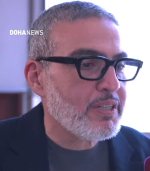
European gas prices have dropped to their lowest level in 18 months, but households may not benefit from the cheaper bills until summer. The mild weather and increased storage capacity
mean that natural gas prices in Europe are now similar to what they were before Russia's invasion of Ukraine triggered an energy crisis. The benchmark price fell below €50 per megawatt-hour on Friday, far from the all-time high of €320 in August last year. However, energy firms buy their supplies in advance, so it may take months for the drop in prices to reach consumer bills.
The energy price cap, which is set to protect consumers from excessive increases, will still rise from £2,500 to £3,000 in April, based on the average cost of gas over the past few months. Tony Jordan, senior partner at energy consultancy Auxilione, predicts that the cap will fall to £2,000 in the summer, as lower prices ease the burden on struggling families.
Soaring gas and electricity bills have driven the cost-of-living crisis in the UK and fueled double-digit inflation. Lower gas prices are expected to help the Bank of England "a great deal" in taming inflation and could also lead to a lower peak in interest rates. There is some speculation that Chancellor Jeremy Hunt could provide further support for households in the upcoming Budget by delaying the April price cap increase and keeping the ceiling at £2,500. However, a Whitehall source stated that there are currently no plans to do so.
A warm winter and reduced energy demand have allowed EU countries and the UK to build up their energy stocks in recent months and to find alternative suppliers to Russia. This was key after Vladimir Putin slashed gas exports to Europe in retaliation to sanctions over his war in Ukraine. The crisis has highlighted Britain's dependence on foreign supplies and led British Gas-owner Centrica to reopen the Rough gas storage facility, which it closed in 2017, in an attempt to boost the UK's reserves.
Energy storage facilities are now at an average five-year high across Europe, which has driven wholesale prices significantly lower and dampened fears of blackouts. However, Jordan warned that energy markets are still very "sensitive to global events." He said that "things are looking up, but we're still not out of the woods yet." Photo by Ivan Radic, Wikimedia commons.









































